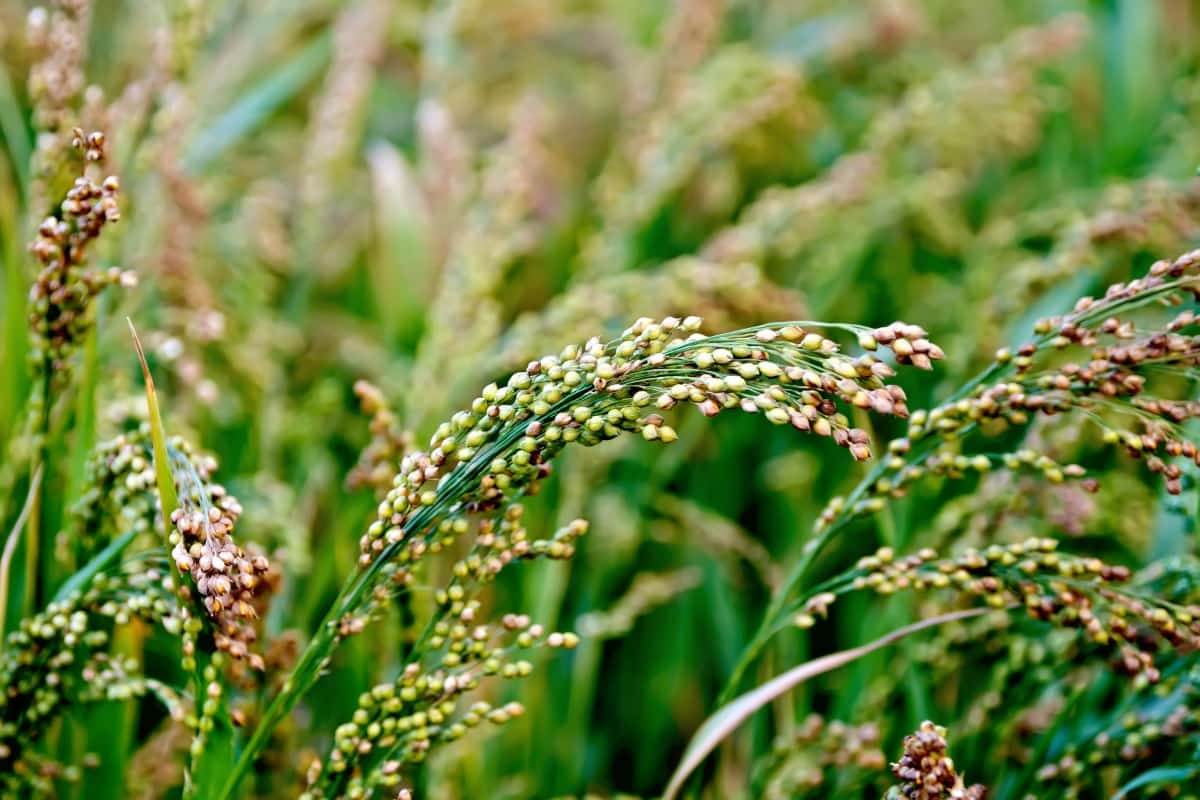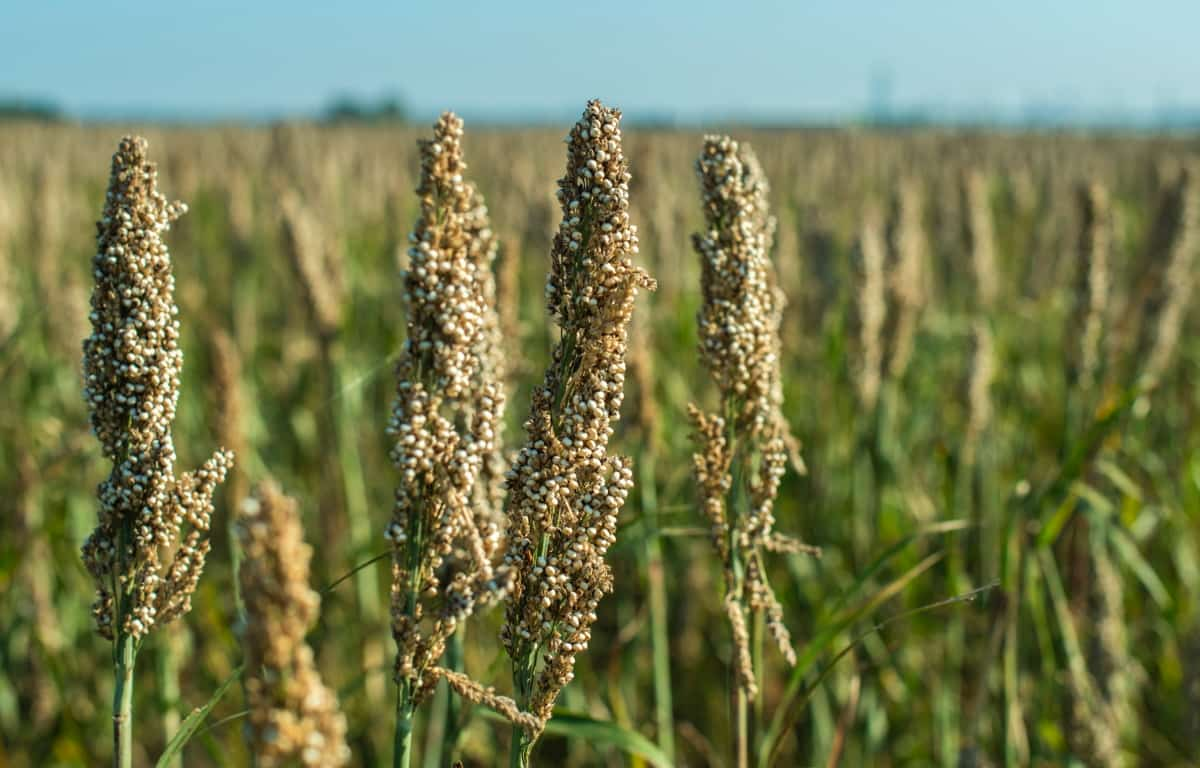Organic farming is a type of farming that aims to support sustainable, safe, and eco-friendly techniques. The process of organic farming avoids the use of synthetic pesticides, genetically modified organisms, artificial fertilizers, and growth hormones. Instead, it incorporates traditional farming methods that maintain soil health and promote ecological balance.

One such crop that can be organically grown with considerable benefits is millet. Millets are nutritious and resilient crops suitable for cultivation under challenging weather conditions. These hardy grains are drought-tolerant, require less water than many other cereal crops, and can thrive in poor soils, making them ideal for organic farming. In India, the organic farming industry, including organic millet farming, has grown significantly over the past few years.
Recognizing the potential for growth in this sector, the Indian government has established a robust framework for organic certification. It includes strict guidelines and requirements that farmers must meet to ensure the products are organic. The certifying bodies are accredited by the Agricultural and Processed Food Products Export Development Authority (APEDA) under the National Programme for Organic Production (NPOP).
Organic Millet Farming Certification
Organic Millet Farming Certification Requirements
The organic certification process in India is quite rigorous and requires farmers to strictly adhere to a set of requirements. These requirements for organic millet farming include pre- and post-production practices, which are discussed in detail below. In the pre-production phase, the emphasis is on maintaining and enhancing soil fertility.
This involves preparing the soil using organic matter such as farmyard manure, green manure, compost, or other organic fertilizers. It’s important to note that synthetic or chemical fertilizers are strictly prohibited. Furthermore, organic millet farmers must follow crop rotation practices to maintain the fertility of the soil and prevent pest and disease infestation. Crop protection in organic millet farming involves using organic or biological methods.
Farmers must resort to natural pest and disease control methods, such as botanical pesticides, bio-control agents, or mechanical methods. Use of synthetic pesticides and fungicides is strictly prohibited. Similarly, only organically produced seeds should be used for sowing. Genetically modified (GM) seeds and planting materials are not allowed under organic farming practices. For the post-production phase, the requirements are equally rigorous.
After harvesting, the organic millets should be stored and processed separately from conventionally grown crops to prevent cross-contamination. Processing should also be carried out without using any chemical additives or preservatives. It’s crucial to ensure that the organic millets come into contact with non-organic substances at no point in the process.
Organic Millet Farming Certification Process
Obtaining organic certification for millet farming in India involves several steps. The process starts by sending an application to a certified organization. The farmer provides details about the farm, the crop, farming practices, and other relevant information. The certification body carefully reviews this application to ensure the practices mentioned align with the NPOP standards.
In case you missed it: Homemade Fertilizers to Make Money Plant Bushy and How to Grow Faster in Water and Soil

Once the application is approved, the farm undergoes an initial assessment. An inspector visits the farm to check how they farm, the soil condition, the things they use, and how they handle crops after harvesting. This visit is important for verifying the information given in the application. After that, the farm goes through a conversion period that lasts 2-3 years, depending on how the land was used before and the type of crop being grown.
The farmer must strictly adhere to organic farming practices during the conversion period. Any use of synthetic inputs or non-compliant practices can result in the extension of the conversion period or even the termination of the certification process. Throughout the conversion period, there are annual assessments carried out by the certification body to monitor compliance with organic standards.
These assessments consist of regular on-site inspections and, in some cases, random checks to ensure that organic farming practices are consistently maintained. Any changes to farming practices or deviations from the organic standards must be reported to the certification body immediately. Failing to do so may affect the certification process and could potentially lead to its termination.
Once the conversion period is successfully completed and the certification body is satisfied with the farm’s adherence to organic standards, the farm is eligible for certification. The certification body issues a certificate declaring the farm as organic. This certification is an endorsement of the farm’s commitment to sustainable and environmentally-friendly farming practices. It also allows the farm to market its produce as organic, attracting consumers who prefer organic products for their perceived health and environmental benefits.
In case you missed it: How to Prepare a Vegetable Garden Planting Beds: Starting from Scratch

However, it’s essential to understand that organic certification is not a one-time process. To retain the certification, the farm must continue to comply with the organic standards, and it is subject to annual reviews and surprise checks by the certification body. The certification can be suspended or taken away if any differences are discovered during these inspections.
Conclusion
In conclusion, organic millet farming certification in India is a process requiring strict adherence to organic farming standards as laid out by the National Programme for Organic Production (NPOP). These standards encompass every aspect of farming, from soil preparation, crop cultivation, and pest control to harvesting, storage, and processing.
While obtaining organic certification involves a significant commitment of time and resources, it offers numerous benefits. Not only does it enhance the environmental sustainability of farming practices, but it also opens up new market opportunities for farmers as the demand for organic produce continues to rise both domestically and internationally.
The certification process acts as a guarantee for consumers, ensuring that the produce they purchase is genuinely organic, free from harmful chemicals, and cultivated using practices that promote biodiversity and environmental sustainability. It is very important and helps support organic farming and get more farmers to use sustainable farming methods. This detailed exploration of the certification requirements and process should provide a valuable guide for anyone interested in pursuing organic millet farming in India.
- Feed Your Flock for Less: Top 10 Tips to Save on Chicken Feed
- Ultimate Guide to Ossabaw Island Hog: Breeding, Raising, Diet, and Care
- Hatching Answers: The Top 10 Reasons Your Chickens Aren’t Laying Eggs
- Eggs and Economics: Breaking Down the Cost of Raising Backyard Chickens
- Defend Your Greens: Proven Methods to Keep Iguanas Out of Your Garden
- Ultimate Guide to Cinnamon Queen Chicken: A Comprehensive Guide for Beginners
- Ultimate Guide to California Tan Chicken: Breeding, Raising, Diet, Egg-Production and Care
- Ultimate Guide to Marsh Daisy Chicken: Breeding, Raising, Diet, and Care
- 10 Types of Chicken Farming Businesses You Can Start for Profits